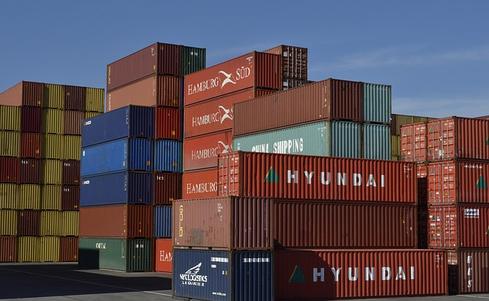451 Research: Containers A $2.7 Billion Market By 2020451 Research: Containers A $2.7 Billion Market By 2020
451 Research sees containers filling a more prominent role in the cloud technologies market by 2020; the container ecosystem growing fast.


More on Cloud
Live at Interop ITX
Containers as a vehicle for launching applications are no flash in the pan. They are expected to penetrate the enterprise and cloud infrastructure to a much greater extent in the next three years than they have to date, turning a $495 million market in 2015 into a $2.69 billion market by the end of 2020.
Containers are currently a small portion of a set of cloud-enabling technologies followed by 451 Research, but they make up the fastest growing part with a 40% compound annual growth rate through 2020.
Those are two of the main conclusions of 451 analyst Jay Lyman, manager of container and cloud management research in his Cloud-Enabling Technologies Market Monitor report for the third quarter of 2016, which was announced as available Jan. 9.
Some critics have said containers have received an undue amount of attention in proportion to the amount of the enterprise and cloud infrastructure they occupy. But Lyman said container adoption in fact has been on a steady increase since early in 2015. At an early stage, they expanded the purposes for which they could be used, from development to testing, quality assurance, staging and production deployments.
"The time between dev and test and production is much shorter than it used to be. We see pretty strong adoption of containers for production applications," he said in an interview.
Containers are part of the accelerated software development process. They figure prominently in DevOps organizations due to their ease of modification, hand-off and migration into operations. They allow next generation applications to be produced as a series of interconnected containers. But their path into the market has been less dramatic than anticipated due to the fact they are not necessarily displacing virtual machines, as some projected they would.
"VMs already have the tooling for deployment and management. We don't see virtual machines going away. We see containers as more co-existent with VMs for at least the next 2-3 years," Lyman said.
Virtual machines also provide a known level of security. "Containers are being held to a high standard," and will be expected to come close to the same level before they're fully accepted in the enterprise, Lyman added. "We don't see VMs going away," he said.
Want to learn about one of the up and coming container companies? See Mesosphere Links To Supporting Systems For Container Use.
Even with $2.7 billion in revenues projected by 2020, containers still didn't account for a large share of the cloud technologies market in 2016, amounting to $765 million. This year they'll cross the $1 billion mark and total $1.1 billion, the 451 Research report said. Next year, they're project to grow to $1.5 billion, and in 2019, jump to $2.1 billion.
Part of that estimate is based on the number of companies sprouting in the container space. Docker was an early pioneer, with Mesosphere, CoreOS, Apcera and other on its heels. There are now 125 container vendors being tracked by 451 Research, Lyman said in the interview. That's up from 30 three years ago.
Some consolidation is already occurring as well, with large companies picking the low hanging fruit to make their own entry into container management. The platform as a service provider Apprenda acquired Kismatic, an early implementer of a product based on Kubernetes open source code, last May for an undisclosed amount. Kubernetes is a project founded by Google to share its container cluster building and cluster management know-how. The Mesosphere Data Center Operating System also has Kubernetes at its core.
Cisco acquired ContainerX, a product based on the cluster approach offered by Docker in Docker Swarm, last August for an undisclosed amount. The eight-person firm was located in San Jose.
Lyman said he anticipated container adoption would proceed at a faster pace than OpenStack cloud software adoption did, judging by the number of young companies forming the ecosystem and the uptake of containers for production purposes.
In April-May, 451 Research surveyed IT managers and found 25% of the participants were using containers. Of that 25%, 34% were using them in production and another 28% had begun their first production deployments.
Although initial use is often on premises, Lyman said the future use in the cloud is clearly part of the reason why they are succeeding. "Docker was born into and is part of the cloud era. They're providing new packaging for applications to be used in the cloud, not so much for use in the standard way of building applications," he said.
And that means there are now openings for young companies to get established in deploying containers, monitoring containers and managing them. Containers are considered a lighter weight and more efficient way to run applications because multiple containers can run under one operating system. With virtual machines, each VM is packaged up with its own operating system. In that vein, containers will run several applications on a server in a fraction of the memory space required for the same applications running in VMs, and it's now considered appropriate operationally to do so.
"I don't see containers killing off virtual machines any time soon," he said. "But there's plenty of disruption that will be going on."
About the Author
You May Also Like






